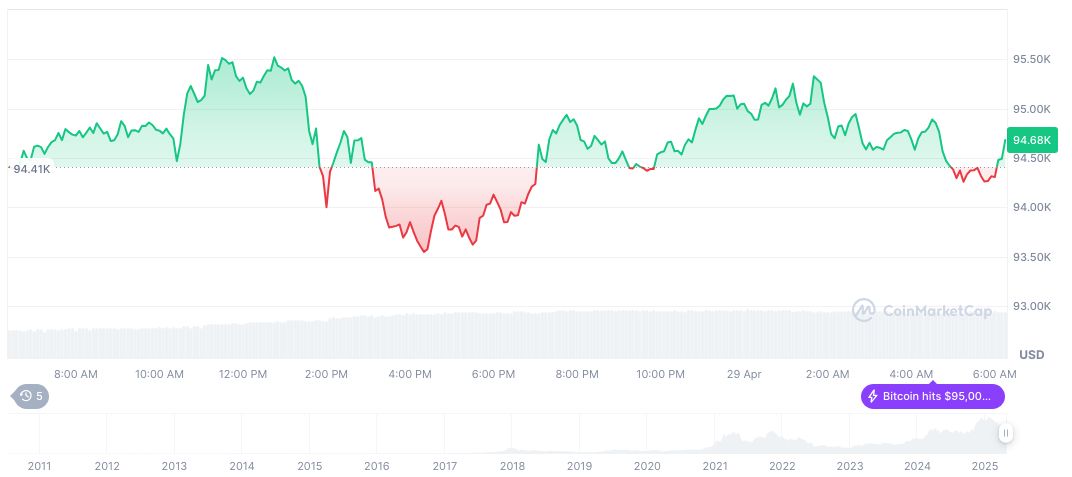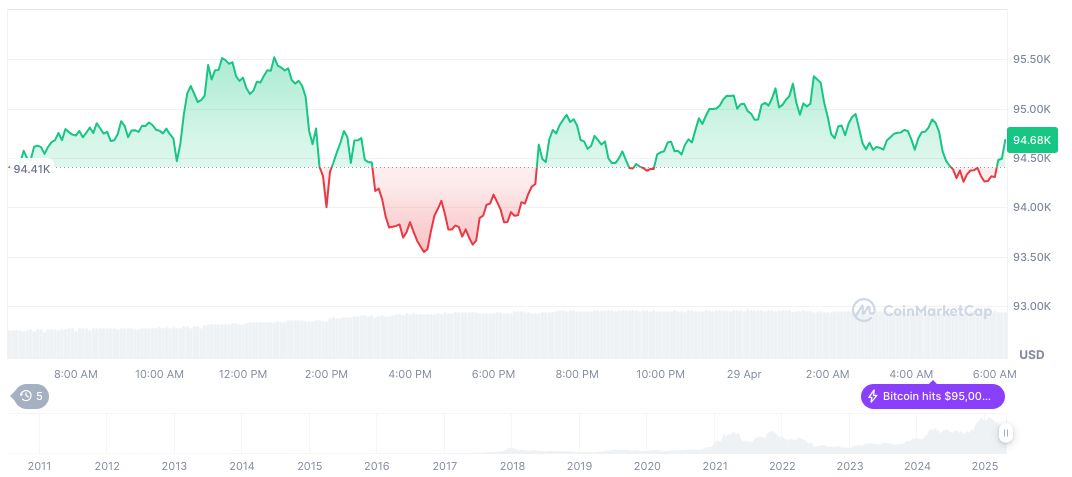- U.S. Consumer Confidence Index falls to 86.0 in April.
- Concerns over tariffs and inflation influenced the decline.
- Economic slowdown expected if consumer spending decreases.
In April 2025, the U.S. Consumer Confidence Index dropped sharply to 86.0, its lowest since May 2020, reflecting growing economic pessimism. The index declined by 7.9 points amidst escalating tariff concerns and inflation pressures, according to data from the U.S. Conference Board.
The drop in consumer confidence indicates mounting uncertainty as tariffs and inflation strain household budgets, signaling potential impacts on spending and economic growth.
U.S. Confidence Index Drops to 86.0 Amid Inflation
Consumer confidence in the United States has plummeted as the index recorded its fifth consecutive decline, reaching a low of 86.0, unseen since the COVID-19 outbreak. This decline, as highlighted by Stephanie Guichard of the World Business Federation Global Index, underscores increasing worries about tariffs and their economic implications.
Economic pressures are mounting due to rising tariffs and persistent inflation, highlighting concerns that businesses rushed imports to offset future cost rises. This trend could result in reduced consumer spending, which would affect overall economic activity and prompt further declines in the GDP outlook.
“High financial market volatility in April pushed consumers’ views about the stock market deeper into negative territory, with 48.5% expecting stock prices to decline over the next 12 months (the highest share since October 2011). Meanwhile, average 12-month inflation expectations reached 7% in April—the highest since November 2022, when the US was experiencing extremely high inflation.” – Stephanie Guichard, Chief Economist, World Business Federation Global Index
Anticipated Market Effects as GDP Growth Slows
Did you know? The April drop in consumer confidence marks the steepest three-month decline since 1990, paralleling scenarios where Bitcoin experienced volatility spikes due to such macroeconomic pressures.
Bitcoin (BTC) maintains a commanding market share with a trading value of $95,174.15 as of April 29, 2025, and a market cap of $1.89 trillion. Despite recent turbulence, BTC reported a modest 0.46% rise over 24 hours and a 4.87% increase over a week, highlighting its resilience amid broader market challenges, according to CoinMarketCap.
Coincu research suggests continued vigilance, as historical precedent shows possible regulatory adjustments or digital asset volatility following significant consumer confidence shifts. If economic conditions persist, heightened vigilance regarding inflation and import costs remains necessary, possibly impacting both digital and traditional asset allocations in the coming months.
Source: https://coincu.com/334891-us-consumer-confidence-fall-april-2025/

